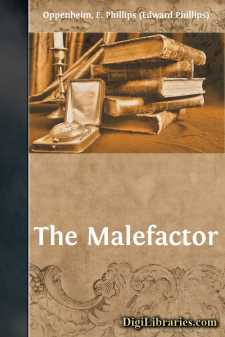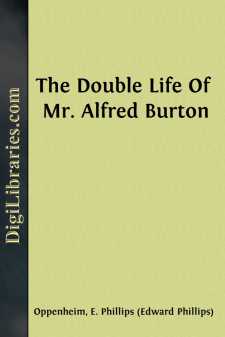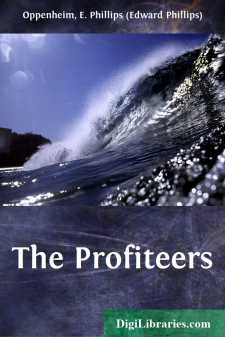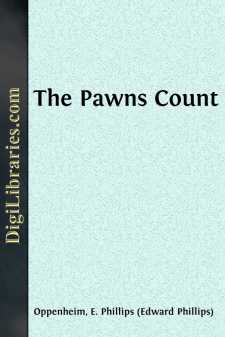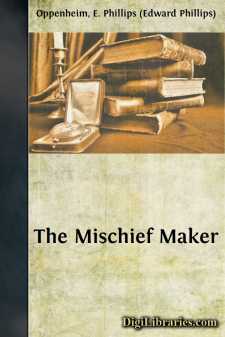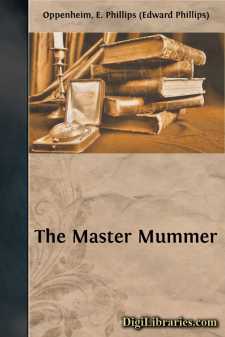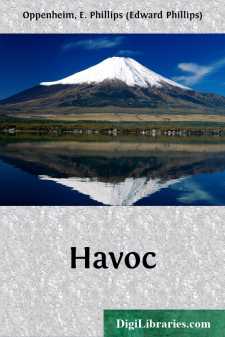Categories
- Antiques & Collectibles 13
- Architecture 36
- Art 48
- Bibles 22
- Biography & Autobiography 813
- Body, Mind & Spirit 142
- Business & Economics 28
- Children's Books 17
- Children's Fiction 14
- Computers 4
- Cooking 94
- Crafts & Hobbies 4
- Drama 346
- Education 46
- Family & Relationships 57
- Fiction 11829
- Games 19
- Gardening 17
- Health & Fitness 34
- History 1377
- House & Home 1
- Humor 147
- Juvenile Fiction 1873
- Juvenile Nonfiction 202
- Language Arts & Disciplines 88
- Law 16
- Literary Collections 686
- Literary Criticism 179
- Mathematics 13
- Medical 41
- Music 40
- Nature 179
- Non-Classifiable 1768
- Performing Arts 7
- Periodicals 1453
- Philosophy 64
- Photography 2
- Poetry 896
- Political Science 203
- Psychology 42
- Reference 154
- Religion 513
- Science 126
- Self-Help 84
- Social Science 81
- Sports & Recreation 34
- Study Aids 3
- Technology & Engineering 59
- Transportation 23
- Travel 463
- True Crime 29
The Malefactor
Description:
Excerpt
A SOCIETY SCANDAL
Tall and burly, with features and skin hardened by exposure to the sun and winds of many climates, he looked like a man ready to face all hardships, equal to any emergency. Already one seemed to see the clothes and habits of civilization falling away from him, the former to be replaced by the stern, unlovely outfit of the war correspondent who plays the game. They crowded round him in the club smoking room, for these were his last few minutes. They had dined him, toasted him, and the club loving cup had been drained to his success and his safe return. For Lovell was a popular member of this very Bohemian gathering, and he was going to the Far East, at a few hours' notice, to represent one of the greatest of English dailies.
A pale, slight young man, who stood at this right hand, was speaking. His name was Walter Aynesworth, and he was a writer of short stories—a novelist in embryo.
"What I envy you most, Lovell," he declared, "is your escape from the deadly routine of our day by day life. Here in London it seems to me that we live the life of automatons. We lunch, we dine, we amuse or we bore ourselves, and we sleep—and all the rest of the world does the same. Passion we have outgrown, emotion we have destroyed by analysis. The storms which shake humanity break over other countries. What is there left to us of life? Civilization ministers too easily to our needs, existence has become a habit. No wonder that we are a tired race."
"Life is the same, the world over," another man remarked. "With every forward step in civilization, life must become more mechanical. London is no worse than Paris, or Paris than Tokyo."
Aynesworth shook his head. "I don't agree with you," he replied. "It is the same, more or less, with all European countries, but the Saxon temperament, with its mixture of philosophy and philistinism, more than any other, gravitates towards the life mechanical. Existence here has become fossilized. We wear a mask upon our faces; we carry a gauge for our emotions. Lovell is going where the one great force of primitive life remains. He is going to see war. He is going to breathe an atmosphere hot with naked passion; he is going to rub shoulders with men who walk hand in hand with death. That's the sort of tonic we all want, to remind us that we are human beings with blood in our veins, and not sawdust-stuffed dolls."
Then Lovell broke silence. He took his pipe from his mouth, and he addressed Aynesworth.
"Walter," he said, "you are talking rot. There is nothing very complex or stimulating about the passion of war, when men kill one another unseen; where you feel the sting in your heart which comes from God knows where, and you crumple up, with never a chance to have a go at the chap who has potted you from the trenches, or behind a rock, a thousand yards off. Mine is going to be, except from a spectacular point of view, a very barren sort of year, compared with what yours might be if the fire once touched your eyes. I go where life is cruder and fiercer, perhaps, but you remain in the very city of tragedies."
Aynesworth laughed, as he lit a fresh cigarette....


